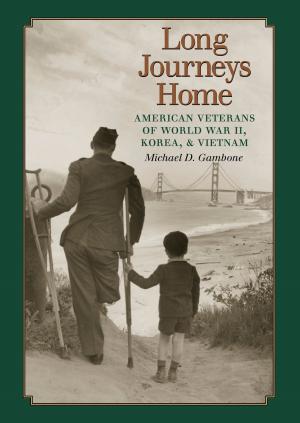I Cannot Forget
Imprisoned in Korea, Accused at Home
Nonfiction, History, Asian, Korean War, Military, Americas, United States, 20th Century| Author: | Judith Fenner Gentry, John Wilson Moore | ISBN: | 9781623490096 |
| Publisher: | Texas A&M University Press | Publication: | September 1, 2013 |
| Imprint: | Texas A&M University Press | Language: | English |
| Author: | Judith Fenner Gentry, John Wilson Moore |
| ISBN: | 9781623490096 |
| Publisher: | Texas A&M University Press |
| Publication: | September 1, 2013 |
| Imprint: | Texas A&M University Press |
| Language: | English |
Eighteen-year-old Johnny Moore was an energetic, self-confident private first class when he entered combat with a heavy-weapons platoon in Korea. Four and a half months later, after surviving heavy attacks on the Pusan Perimeter and in one of the forward units of the western column advancing on the Yalu River, he was captured by the Chinese infantry.
Moore and other American POWs suffered from starvation rations, bitter cold, and mental torment. Although the intense Chinese efforts to change the prisoners’ ideologies were largely unsuccessful, they were very effective in engendering distrust among the prisoners and abandonment of duty by the officers. Encouraged by an American sergeant, Moore worked with his captors to obtain better sanitation, a fairer distribution of food, and, on two occasions, medicine for the sick. Twice he tried to escape from imprisonment. Just four days after his twenty-first birthday, in 1953, the Chinese released him.
Moore cooperated fully with US military interrogators, giving as much information as he could on the prison camp and the methods his captors had used. But two years later, army officers arrested him at his home and charged him with treason. Although the charge was dropped and a Field Board of Inquiry returned him to regular duty, the army’s treatment of him left Moore further traumatized. He eventually went AWOL and turned to drinking, gambling, and other self-destructive behaviors.
Military historian Judith Fenner Gentry has worked with Moore’s memoirs of his experiences during and after the war to corroborate, clarify, elaborate, and situate his story within the larger events in Korea and in the Cold War. She has consulted records from courts-martial, newspaper interviews with returning POWs, and Freedom of Information Act documents on the Army Criminal Investigation Division and the Army Counter-Intelligence Corps.
Eighteen-year-old Johnny Moore was an energetic, self-confident private first class when he entered combat with a heavy-weapons platoon in Korea. Four and a half months later, after surviving heavy attacks on the Pusan Perimeter and in one of the forward units of the western column advancing on the Yalu River, he was captured by the Chinese infantry.
Moore and other American POWs suffered from starvation rations, bitter cold, and mental torment. Although the intense Chinese efforts to change the prisoners’ ideologies were largely unsuccessful, they were very effective in engendering distrust among the prisoners and abandonment of duty by the officers. Encouraged by an American sergeant, Moore worked with his captors to obtain better sanitation, a fairer distribution of food, and, on two occasions, medicine for the sick. Twice he tried to escape from imprisonment. Just four days after his twenty-first birthday, in 1953, the Chinese released him.
Moore cooperated fully with US military interrogators, giving as much information as he could on the prison camp and the methods his captors had used. But two years later, army officers arrested him at his home and charged him with treason. Although the charge was dropped and a Field Board of Inquiry returned him to regular duty, the army’s treatment of him left Moore further traumatized. He eventually went AWOL and turned to drinking, gambling, and other self-destructive behaviors.
Military historian Judith Fenner Gentry has worked with Moore’s memoirs of his experiences during and after the war to corroborate, clarify, elaborate, and situate his story within the larger events in Korea and in the Cold War. She has consulted records from courts-martial, newspaper interviews with returning POWs, and Freedom of Information Act documents on the Army Criminal Investigation Division and the Army Counter-Intelligence Corps.















